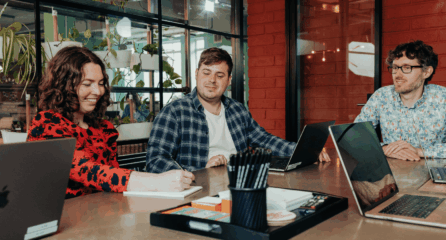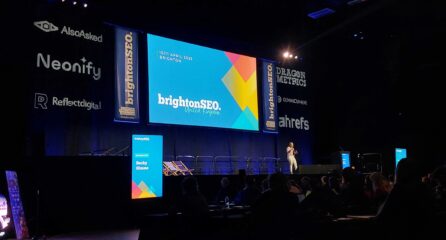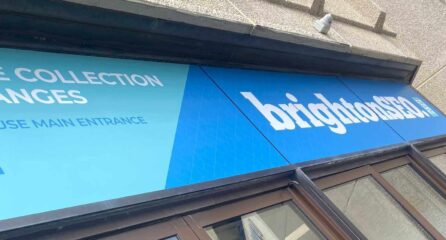You are frustrated with how your website is performing. So how do you transform your business online and find the growth you need?
Ok so we know that you want your website to play a big part in driving your business forward. Unless you have internal digital marketing team with a wide skill set, chances are you’ll want to involve an agency to help.
In this article, we help you understand the services available, how to choose the best agency to partner with, any ‘red flags’ to be aware of , as well as introducing you to the online marketing tools that can actually transform your business.
Is it an SEO agency that you need?
There is a good chance that you will have heard the term SEO banded around in relation to improving your business’ website performance. You have probably deleted numerous spammy emails from your inbox explaining the benefits of an SEO service. It’s no wonder then that you might treat SEO or Search Engine Optimisation with a degree of suspicion and scepticism.
So what is SEO?
There are ever-shifting definitions of what SEO is and the kind of services that are included within it. With this in mind, and to ensure that we’re all on the same page, here is the Loom definition of SEO:
“Ensuring that there are no technical issues with your website and that it is in the best possible position for search engines to access, approve of, and understand your site and its purpose”
Is SEO all you need?
The simple answer is no. SEO as a standalone service will not help you achieve your goals.
SEO is an important aspect of an online marketing project and should be integrated with other digital marketing techniques. The SEO tasks that we carry out at Loom form part of the initial set-up of a project and are continually reviewed throughout the duration of a project. However, if you want to achieve meaningful growth and meet your ambitious goals, you will need to consider a wider range of online marketing tools and strategies.
What SEO isn’t?
There are lots of myths that exist around SEO. One being that it is a bolt-on service that can be ‘done to a site’ with a plugin. Your website developer may tell you that they’ve added an SEO plugin and that the site has therefore been SEO’ed or optimised. This is not the case.
Another myth also exists that SEO can be switched on and off – this is not the case. SEO is a ongoing process which sits as part of a wider online marketing strategy.
If SEO isn’t all you need, what else should you be doing?
Once your website is technically healthy, fully accessible, can be understood by search engine bots, and is in a position to shine, what happens next?
Well now it’s time to focus on getting the right people to visit and engage with your site.
In order to achieve growth online, you need to consider a full online marketing campaign to:
- Increase your online visibility
- Find, reach and engage with your target audiences
- Build more engaged online communities
- Generate more sales / conversions
- Effectively communicate your brand messaging
So what is online marketing?
Online marketing –As with SEO, this term can be open to interpretation. So to clarify – when we talk about online marketing, we refer to all of the different tools that can be used to help you achieve your business goals. This may include content marketing, SEO, content promotion, social media management, online PR, communications, PPC, display and remarketing campaigns and a whole lot more. For maximum effectiveness, these should all be tied together with a strategy based on your business needs
What skills should an online marketing agency offer?
Tons of Creativity – Creativity should be a key part of all online marketing activities. Creativity in devising new and innovative ways of reaching and connecting with your target audiences. Creativity in communicating your brand and values in the online space. Creativity in generating content.
A Partnership – Agencies who work closely with you and the internal teams are able to challenge ideas, leverage in-house knowledge, and ensure that all efforts are being aligned.
Technical Expertise – Online marketing is not just about marketing. It’s not just getting people to engage with your brand and your site, its making sure that your site offers the best possible experience. An online marketing agency should ideally be involved early in a website build process, offering invaluable advice to the web developers to ensure that your site is user friendly, fully crawlable and has the best chance of succeeding. The information architecture, website structure, navigation, internal linking and many other factors should be considered at the start, and throughout a project.
Proactivity – A good online marketing agency should be constantly looking at ways that they can help your business grow. Taking an active role in your business development and planning for the future.
Good agencies keep up-to-date with web design trends, technical developments and algorithm changes and make recommendations which impact your website. This ensures that your site stays ahead of the curve and has the best chance of communicating with your audience both now and in the future.
Research and Analytical Skills – To be able to communicate your message to your audience, an online marketing agency will first need to understand as much as possible about who the audience is and how they behave online. They should spend time learning how customers interact with your products or service, where they spend time online and what’s their search behaviour, in order to produce content that relates directly to the needs of your audience.
Social Media Skills – When it comes to reaching and interacting with your target audiences, social media is a hugely powerful tool. Brands can engage with potential customers and industry ‘influencers’, as well as listen in and develop a deeper understanding of all their needs. An agency should know the benefits of social media and understand how it can be used as part of the online marketing strategy.
Paid Search Expertise – Paid search offers businesses an amazing opportunity to show ads specifically to users searching for the product or service they offer. Whether used on its own or as part of a wider online marketing strategy, it can generate targeted, meaningful and fully trackable results, whatever your business or budget.
Not only does Google paid search allow you to appear for specific queries in the search engine results pages, it also allows you to show branded banners to potential audiences across the web via the Google Display Network. Whether you’re targeting people who may have never encountered your site before to build brand awareness or ‘remarketing’ to those users who have already visited your site, Display activity can have a profound effect on your online success.
Whilst not appropriate in 100% of cases, paid search should always be a consideration as part of a new online marketing project. Look for an agency with a wealth of experience in setting up and effectively managing paid search campaigns.
What to look for and what to avoid when choosing an agency:
Communication
When picking an agency, it is important to find one that is wholly transparent about what they are doing. Understanding what the agency is doing and why will ensure that the work is aligned with the overall business goals. Typically, you’ll be allocated a dedicated Account Manager who’ll keep you well informed and be able to answer any queries.
Communication Red Flags
If you are given the impression by an agency that ‘SEO’ and the work they do is super technical and not something you need to understand, then this should wave a red flag. You should also not tolerate being bombarded with jargon and buzz phrases, a good agency will communicate in a language you understand.
Communication is really key to the success of any project. Receiving the occasional email or phone call will not cut it – you’ll need regular one-on-one and face-to-face meetings with your agency. Lack of communication could be an indication that the agency aren’t tailoring their service to you.
Content
Anything that is added to your site is considered content. This can be everything from a YouTube video to a ‘How To’ guide, a short blog piece to a large in-depth article. Content needs to be unique, created for web users, specifically your target audiences, and provide the information that they need, in a way that engages them as well as communicating your brand values.
Content Red Flags
If the content ideas being proposed to you are focused on ‘giving search engines what they want’, rather than offering something useful to the end user then this is a red flag.
If you find that your site is soon filled with short articles of around 300-400 words in length which have little purpose, then this should also raise some concerns.
Guest blogging is another area to be wary of, especially when it is designed to get backlinks. Any guarantees around backlinks should cause your ears to prick up.
Links are earned from valuable content that is genuinely useful to real people. They are the result of a huge amount of research, planning, creative content and careful relationship building over time – not dodgy networks of sites where links are paid for or given freely.
Results
As a business owner, you will be familiar with measuring performance of the business across a multiple of metrics. For example, measuring return on investment (ROI) and profitability. It’s important to ensure that the metrics reported are meaningful to you and your business.
Results Red Flags
If you come across an agency that talks about ‘Amazing’ Guaranteed Results and Keyword Rankings then this should be a red flag. Be wary of any agency that puts forward the notion that they have some insider knowledge of Google and that this knowledge allows them to trick and manipulate the search engine to give you ‘amazing’ results. Alarm bells should ring if an agency is proclaiming to achieve ‘guaranteed’ top rankings for a handful of keywords. It is likely that they’re using questionable SEO methods, which puts your site at risk. Nothing in the world of search engines can ever be guaranteed.
Also emphasis on keyword rankings alone does not look at the bigger picture – how will ranking for these keywords actually impact your business? Yes, you want to be visible for certain words and phrases associated with your business but there is so much more to consider.
Time
The results of online marketing, including effective optimisation as part of a wider strategy, takes time. Although your site should see improvements in online visibility and traffic once it is technically sound, fully accessible and search engine-friendly, quick wins are a myth. Once good visibility has been achieved, maintaining that visibility and looking for new opportunities becomes key.
Time Red Flags
If an agency promises you results in a short space of time, you should be very wary. Chances are they are employing some very harmful tactics to try and achieve results in the short term. Whilst you may indeed see some quick results, the longer-term impact is likely to be hugely detrimental.
Costs
Generating long-term, business changing results through online marketing takes time and expertise. Online marketing activity should provide good return-on-investment (ROI), but this doesn’t mean it will be ‘cheap’.
Cost Red Flags
Never has the phrase ‘ you get what you pay for’ been so true when it comes to agency costs. Be wary of any service that seems too good to be true. Compared to your other advertising and marketing spends, a standalone SEO service could seem very cheap. But lets just say, there is a relationship between what you put in and what you get out of it. So if something seems to good to be true, in this case – it most definitely is.
Contact Loom
With the right online marketing agency, your business can identify and seize upon opportunities for increased visibility and growth. Take a moment to read our case studies and client testimonials so that you get a realistic idea of how we work with businesses like yours. If you want to pick our brains then feel free to give us a call or drop us an email.
All illustrations by Damian Daly.




